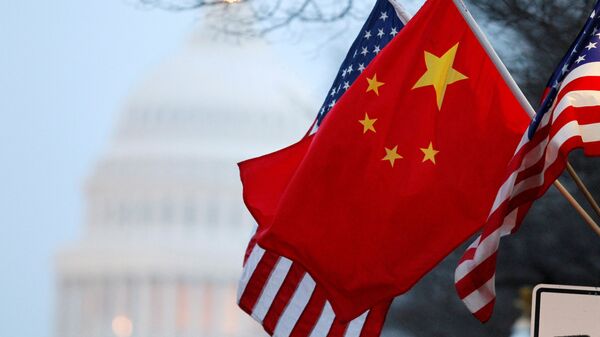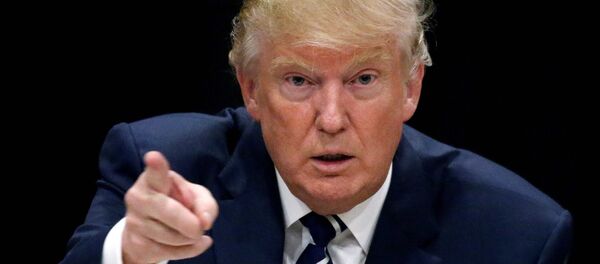Donald Trump hasn't even been handed the keys to the White House yet, but he's already been labeled with the epithet of being clueless on how to govern.
The Chinese Communist party-controlled Global Times ran an editorial on Monday (December 19), which pulled no punches against the upcoming world leader.
President-elect Trump, it said, "is not behaving as a president who will become master of the White House."
"He bears no sense of how to lead a superpower."
The It comes after Trump took to Twitter on the weekend to accuse China of stealing a US drone, saying:
China steals United States Navy research drone in international waters — rips it out of water and takes it to China in unprecedented act.
— Donald J. Trump (@realDonaldTrump) December 17, 2016
He went on to tweet:
We should tell China that we don't want the drone they stole back.- let them keep it!
— Donald J. Trump (@realDonaldTrump) December 18, 2016
The Global Times took particular issue with this second tweet.
"Trump's second tweet makes people worry that he will treat China-US relations as child's play," it said.
"Now people don't know if Trump is engaged in a psychological war with China or he is just unprofessional, even though he will be sworn in soon."
This is a frightening preview of how Trump is going to handle incidents like this when he’s in the White House. @realDonaldTrump
— Charles Johnson (@Green_Footballs) December 17, 2016
Indeed, China-US relations have been on a remarkable roller coaster over the last weeks since Donald Trump won the US election in November 2016.
The view from Beijing was initially cautiously optimistic. During his election campaign, Mr. Trump had suggested repeatedly that he would scrap the Trans-Pacific Partnership (TPP) trade agreement, which has excluded China in the Pacific region.
However, any good will was quickly doused when Trump broke decades of diplomatic convention by calling the president of Taiwan, Tsai Ing-wen.
China views Taiwan has a renegade breakaway state, whereas Taiwan considers itself an independent country.
Trump is playing with fire threatening the One China policy. He's given China justification to invade Taiwan. Wars start this way. #dumb
— David Paine (@DavidMPaine) 7 December 2016
However, the US has publicly backed China's so-called 'One-China' policy since 1979. As part of this, there had been no official contact between a US and Taiwanese President since that time.
Well, that is, until Donald Trump.
Beijing was so incensed at his departure from diplomatic protocol, that it lodged an official complaint with the US.
Trump was undeterred.
Speaking after the call, Trump said:
"I fully understand the 'One-China' policy, but I don't know why we have to be bound by a 'One-China' policy unless we make a deal with China having to do with other things, including trade."
However, Beijing's now very public disapproval of Trump could have very seriously negative political and trade consequences for his new administration.
Also, a key domestic priority for Mr. Trump is to develop US infrastructure, which has been chronically undeveloped in many parts of the country.
Trump's advisers have previously briefed the media that they believe that Chinese foreign direct investment in major infrastructure projects would be an ideal way for the US and China to work together.
However, after already making China hostile before any negotiations have even begun, Mr. Trump may find Beijing more uncompromising to work with than he had hoped.



